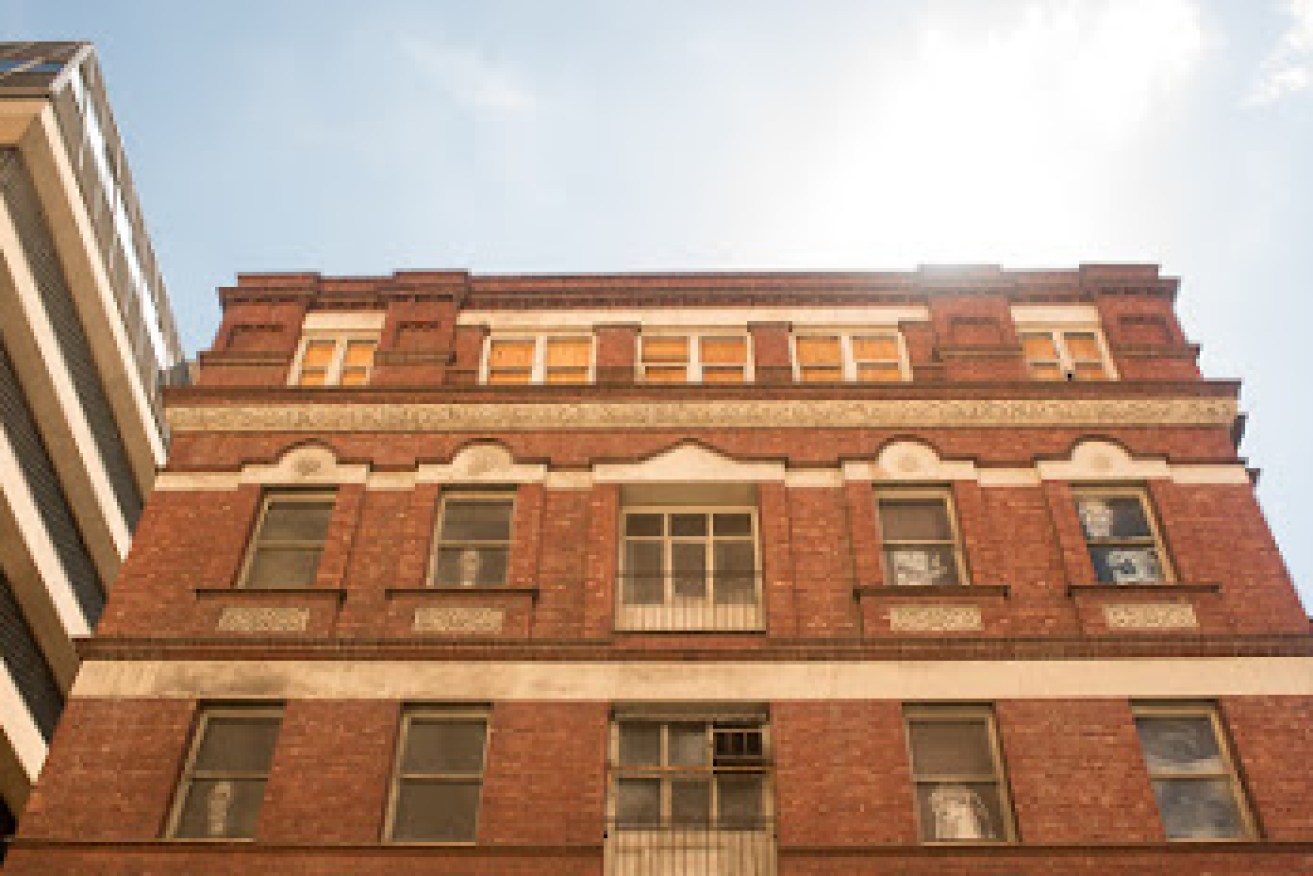SA needs greater demand, not more taxes
With South Australia’s high unemployment rate and low population growth, the last thing property owners need is more taxes, writes Property Council chief Daniel Gannon.

One of Adelaide's beautiful, but long vacant, buildings, on the corner of Gawler Place and North Terrace. Photo: Nat Rogers/InDaily
Last Friday, Ross Womersley from the South Australian Council of Social Service (SACOSS) outlined what he says are the benefits of introducing higher land taxes for residential and commercial buildings that have sat vacant for more than two years.
In simple terms, this is complete nonsense. There are no benefits in slapping taxes on property owners who take great risks to purchase, own and develop land.
In fact, it’s straight out of the John Stuart Mill playbook. He erroneously claimed in 1848 that landlords grow rich in their sleep without working, risking or economising.
Let’s take a reality check at this point.
Property represents the physical foundation of where we live, where we do business through shops, offices, industrial precincts, hotels, and public buildings, as well as places for our creative and recreational pursuits, which add so much to our quality of life. In every meaningful way, property is where life happens and property owners take risks to develop our changing landscapes.
And these risks are heightened during tough economic times.
The property industry in South Australia – the state’s biggest private sector employer – is facing major challenges right now. With unemployment rates still at the top of the league table nationally and population growth rates in the toilet, we have a serious issue with demand for both commercial and residential properties.
SACOSS points to a Victorian case study to underpin its argument. That state is set to apply a 1 per cent tax to any residential properties left vacant for six months to one year.
But the strength of the Victorian economy cannot be ignored. Compared to Adelaide, Melbourne has very few vacant properties to tax, their economy is strong and their residential market is booming. In reality, this tax will struggle to find any victims.
Unfortunately, the same can’t be said of Adelaide. Taxing property owners due to a lack of demand is counter-productive if we want to encourage smart adaptive reuse, asset rejuvenation and ultimately grow our state’s population.
South Australians don’t need tax hikes – as proposed by SACOSS – what we need are tax cuts.
The SACOSS proposal will only make it more expensive for building owners to own property in South Australia – it’s all stick and no carrot. You can’t force people to spend millions of dollars on their buildings (once the relevant Building Code and heritage hurdles have been cleared) to make them suitable for housing when the supply of prospective tenants is soft.
It also needs to be stressed that 47 per cent of buildings in the Adelaide CBD are more than 30 years old, with a combined 38 per cent vacancy in lower grade office buildings – that spells opportunity, not tax.
The latest Office Market Report – released in January this year – revealed an increase in Adelaide CBD vacancy levels from 15.4 to 16.2 per cent (the highest since July 1999), while fringe vacancy increased from 10.9 to 11.3 per cent (the highest since January 1999).
This means that property owners need the right tax and policy environment to upgrade their stock and they require demand from growing businesses to fill their floor space. It’s an economic equation, but one that has been overlooked.
Organisations like Renew Adelaide already exist to develop creative enterprise in vacant spaces. They connect emerging creative initiatives with property owners to activate their buildings and provide them with the opportunity to trial their business concept whilst helping to revitalise urban areas, both socially and economically.
These are the types of organisations and initiatives that are having a positive impact on building use in the CBD – not higher taxes and reactionary levies that only further dampen industry confidence.
So here’s the thing. South Australians don’t need tax hikes – as proposed by SACOSS – what we need are tax cuts.
For example, the State Government could offer stamp duty concessions to those who purchase a residential retrofit within the CBD, much like they have for off-the-plan apartments. This would obviously drive demand and act as an encouragement for building owners.
Our policy-makers could make it more attractive for building owners to examine alternative uses for their properties by developing a grant program which would allow owners in the CBD to access expert opinion at the beginning of a reuse project. This type of access to professional reports about what building owners can and can’t do with their properties will allow them to factor long-term upgrades and reuses of their property into their business plans and allow for a rejuvenation of the CBD’s underutilised stock.
This is the kind of approach that is needed, not a policy that is all stick and no carrot and focused on supply without demand.
Industry, government and the social services sector need to work together in a sensible way to look at issues of housing affordability and city revitalisation. We need innovative new policies to help drive demand, rather than relying on the old trope of higher taxes for building owners.
Higher taxes simply harm the very industry we all rely on for housing options, shops, offices, industrial precincts, hotels, public buildings and jobs.
We don’t just have to think big, we have to think bigger.
Daniel Gannon is the SA Executive Director of the Property Council of Australia.




